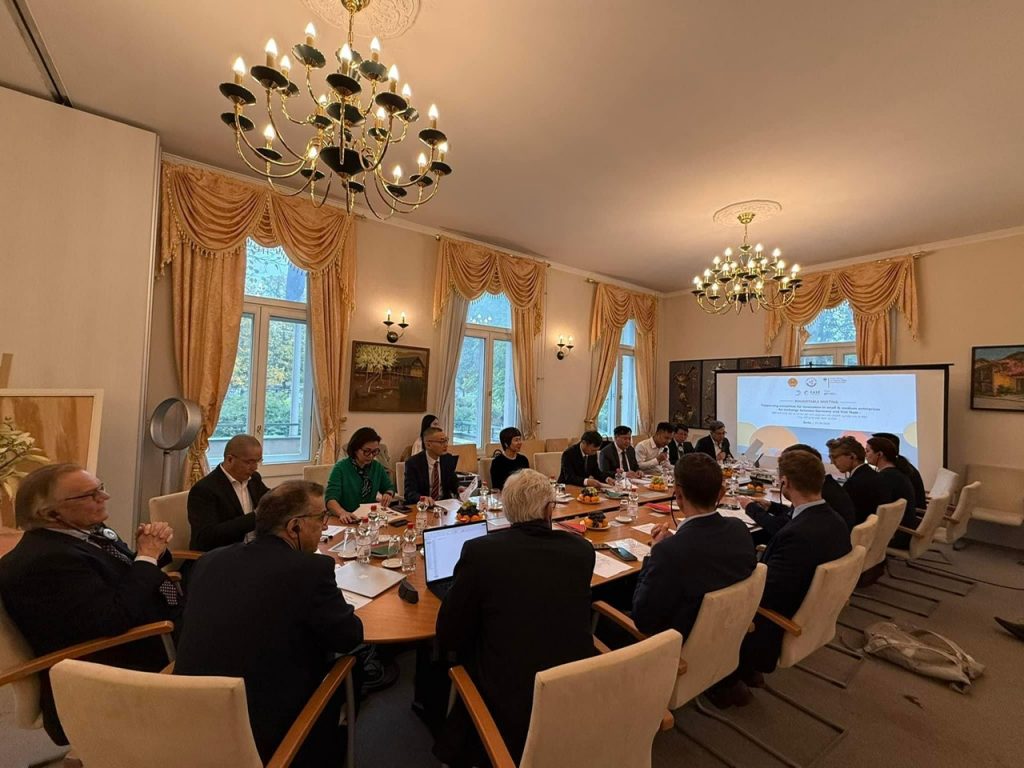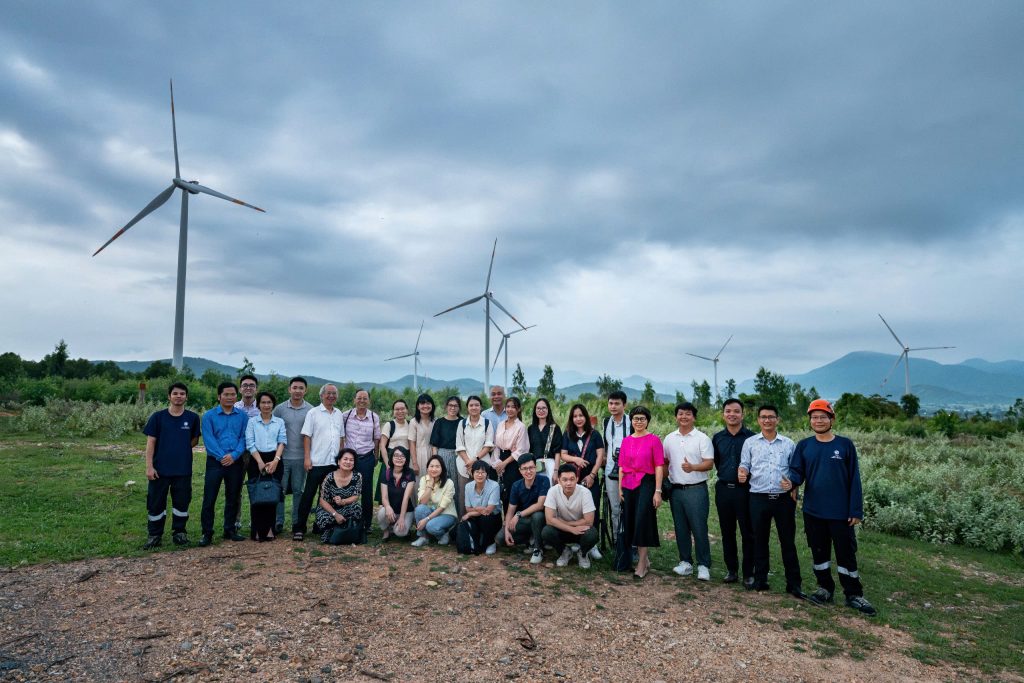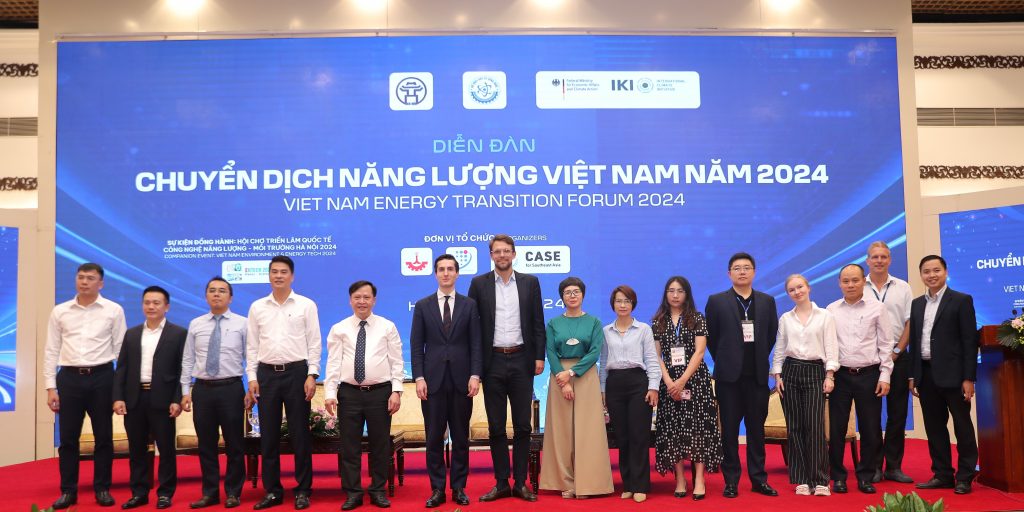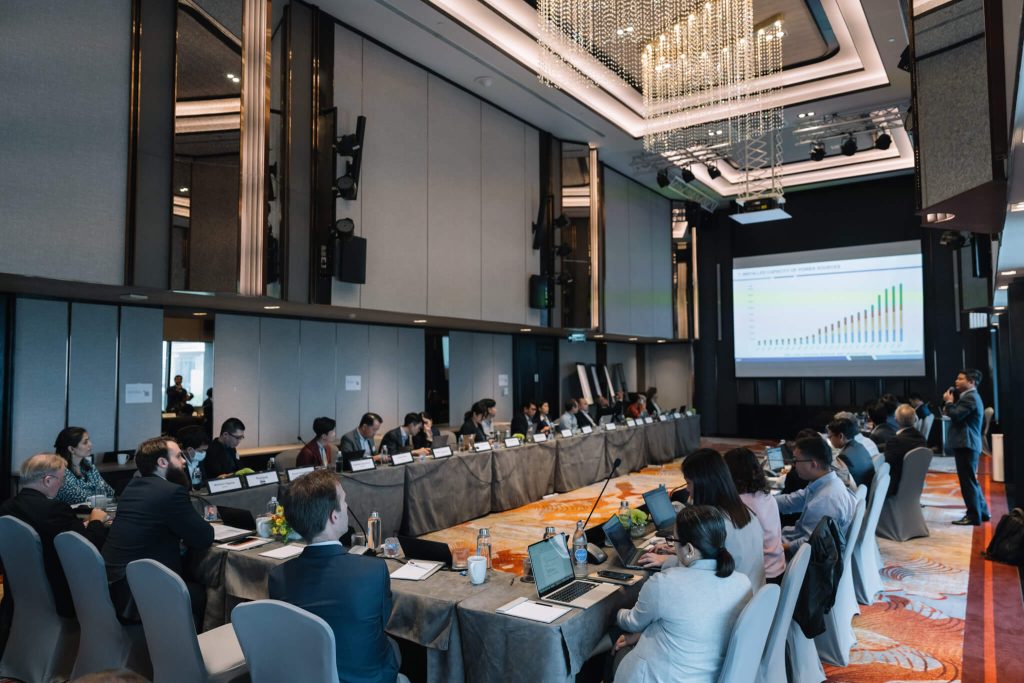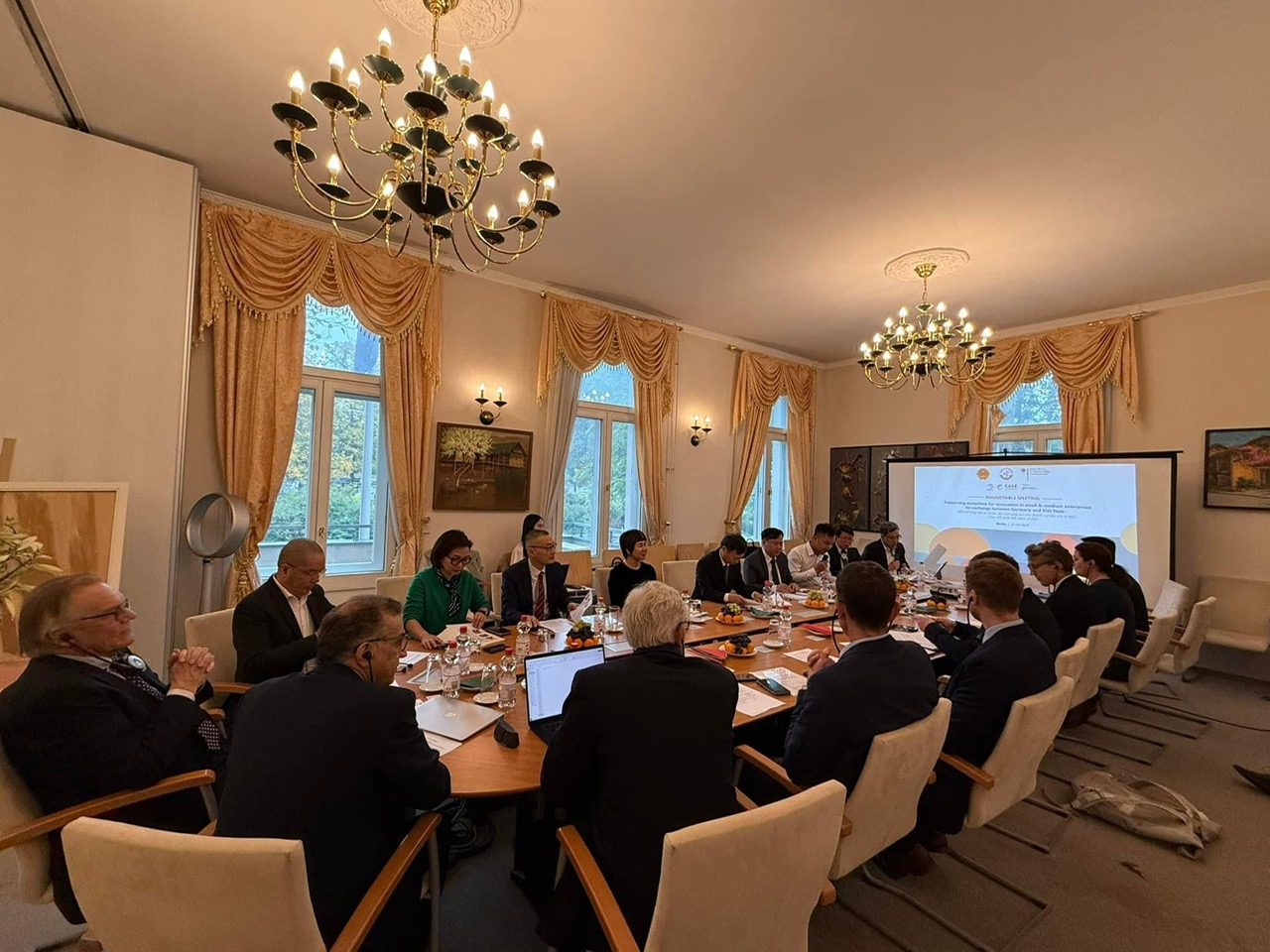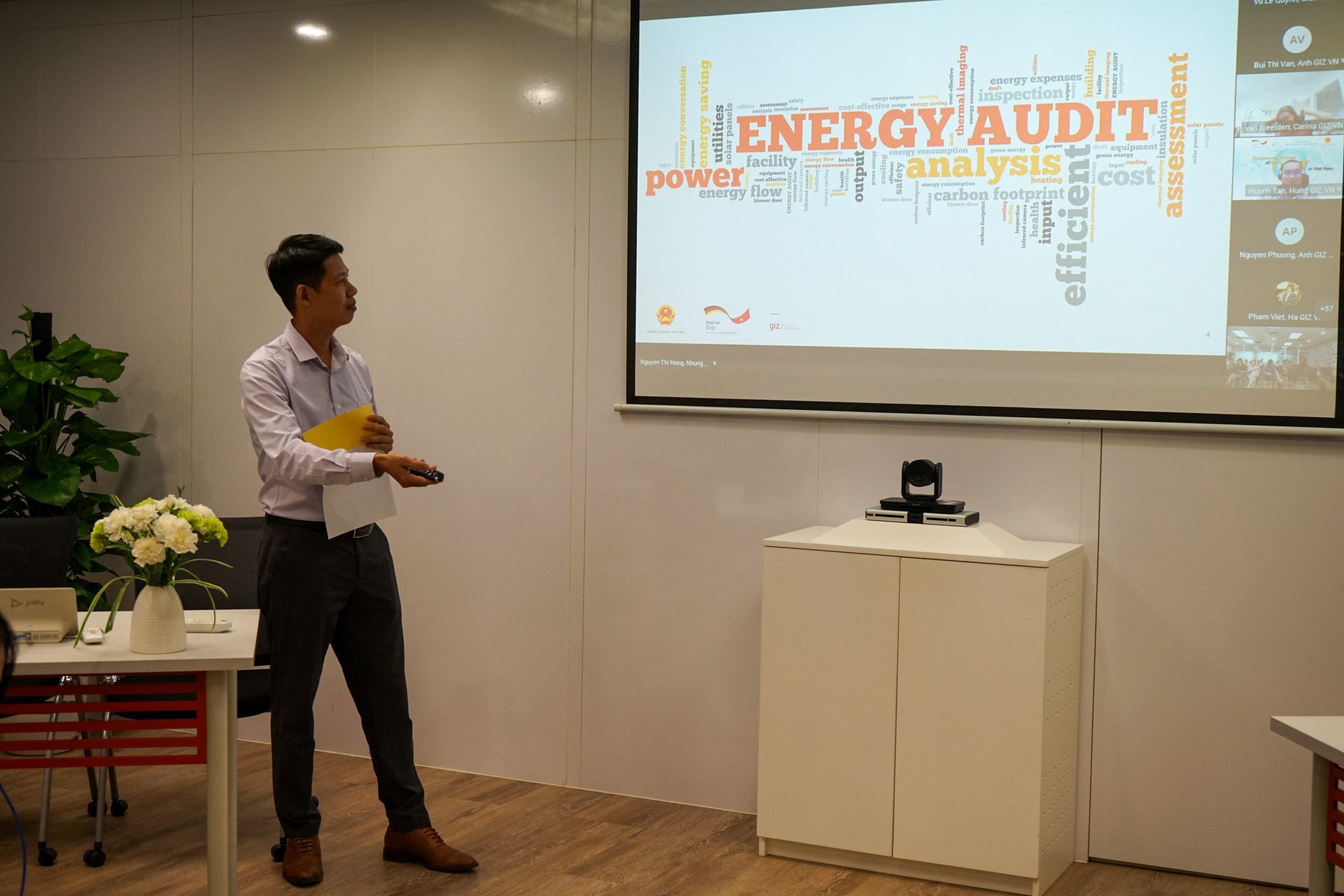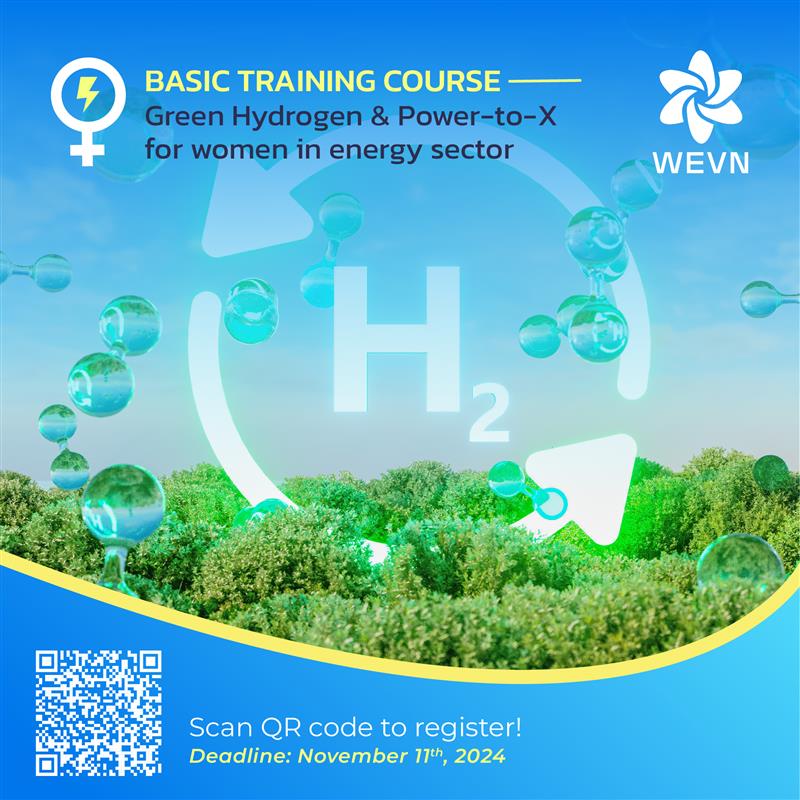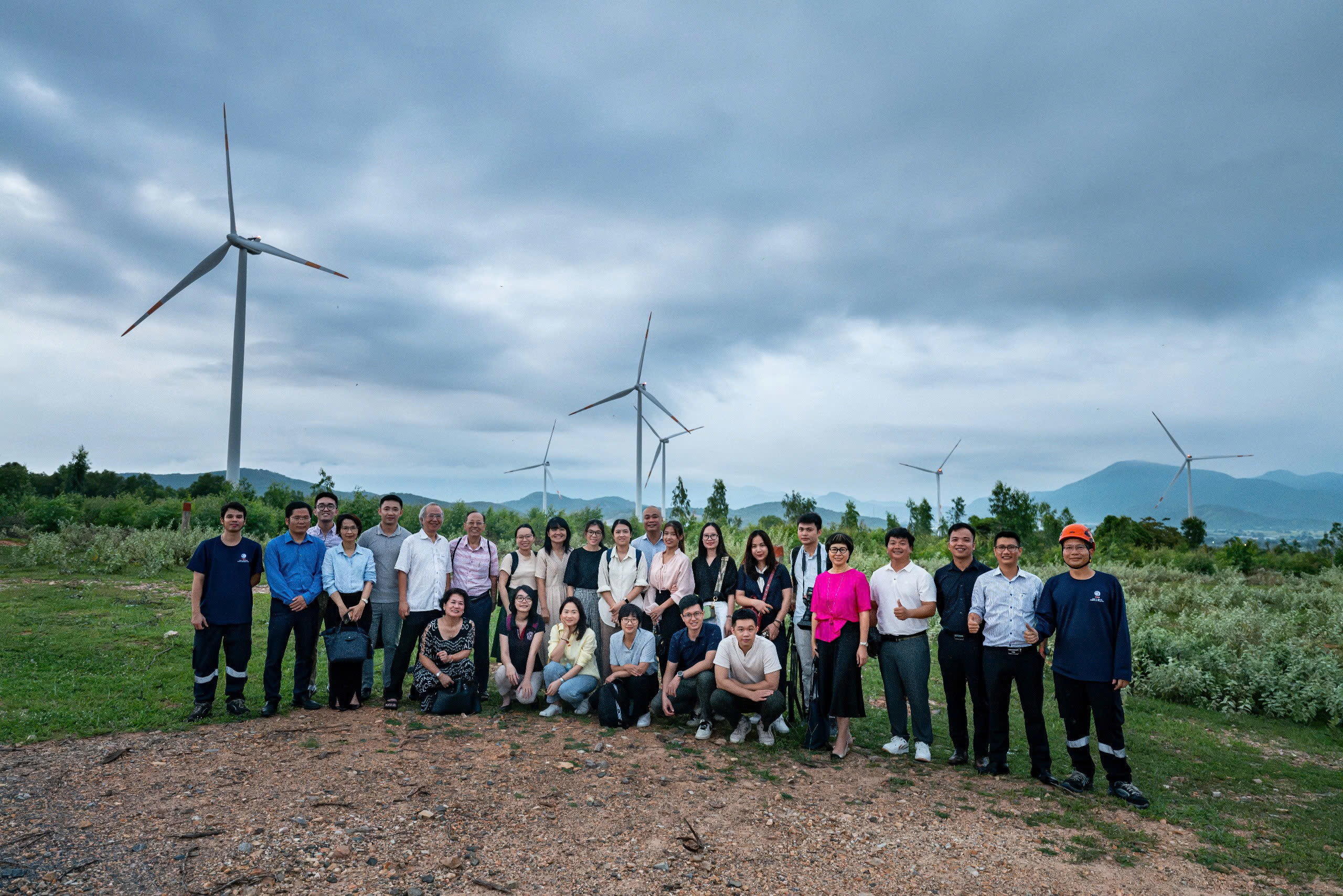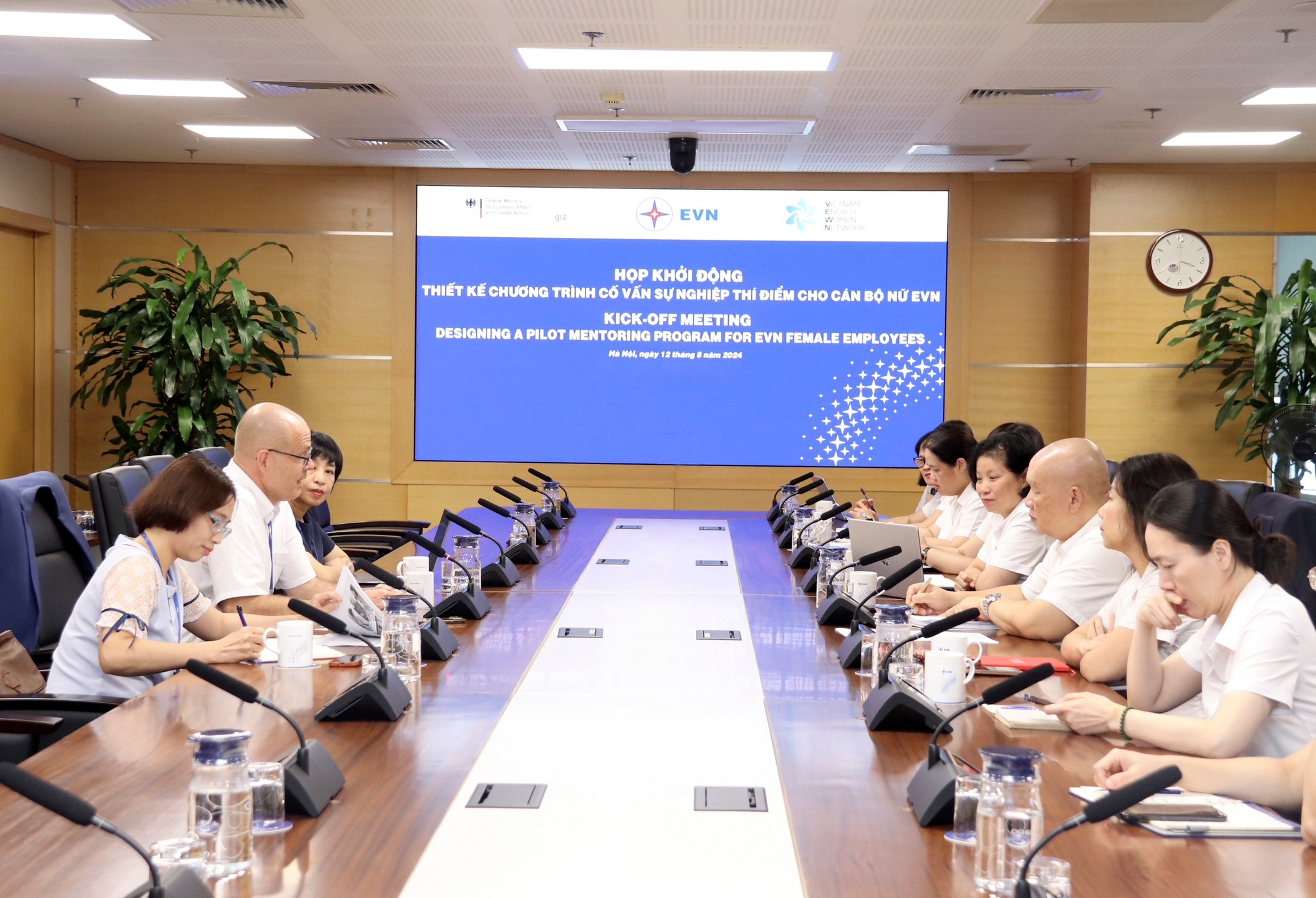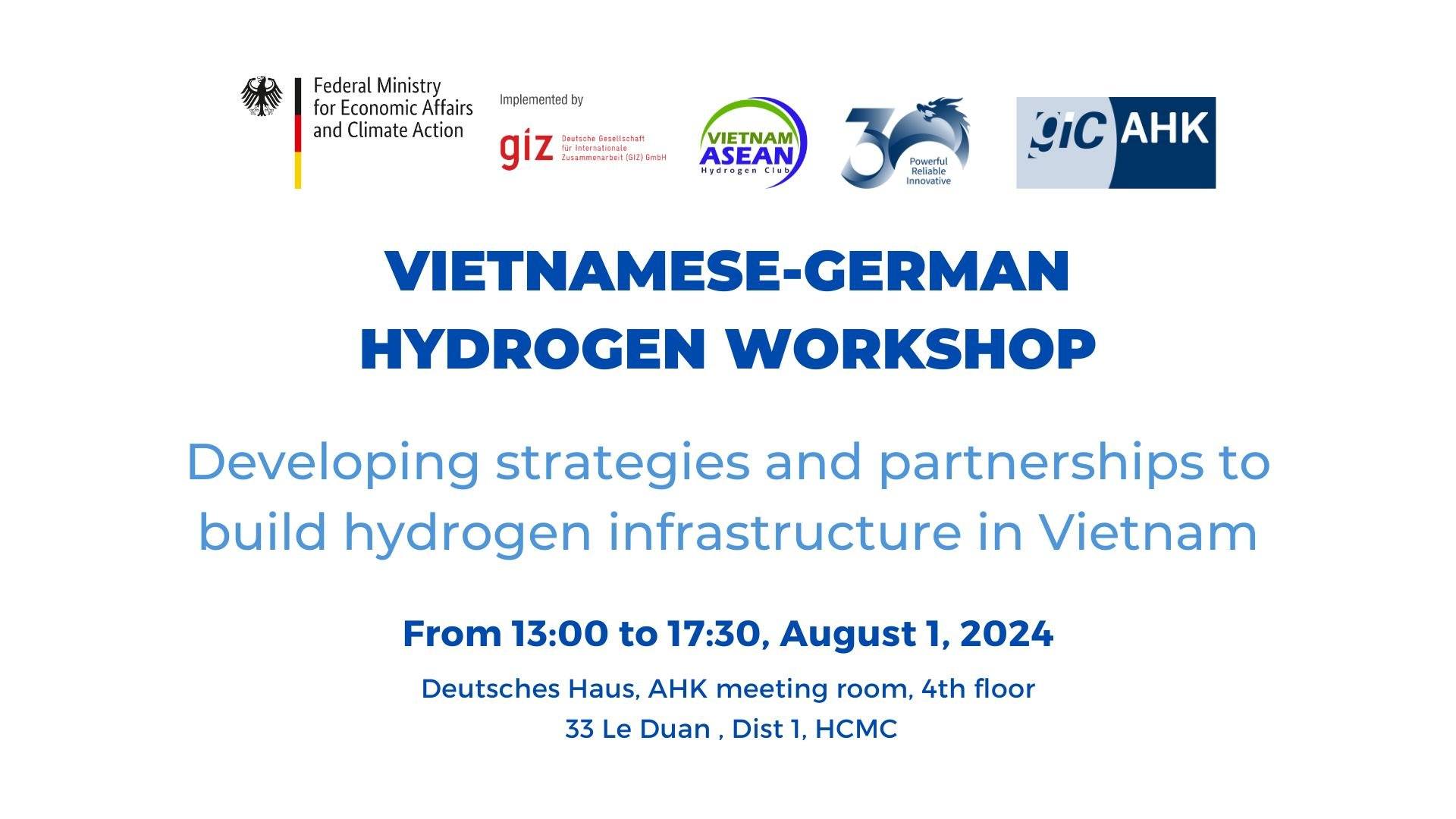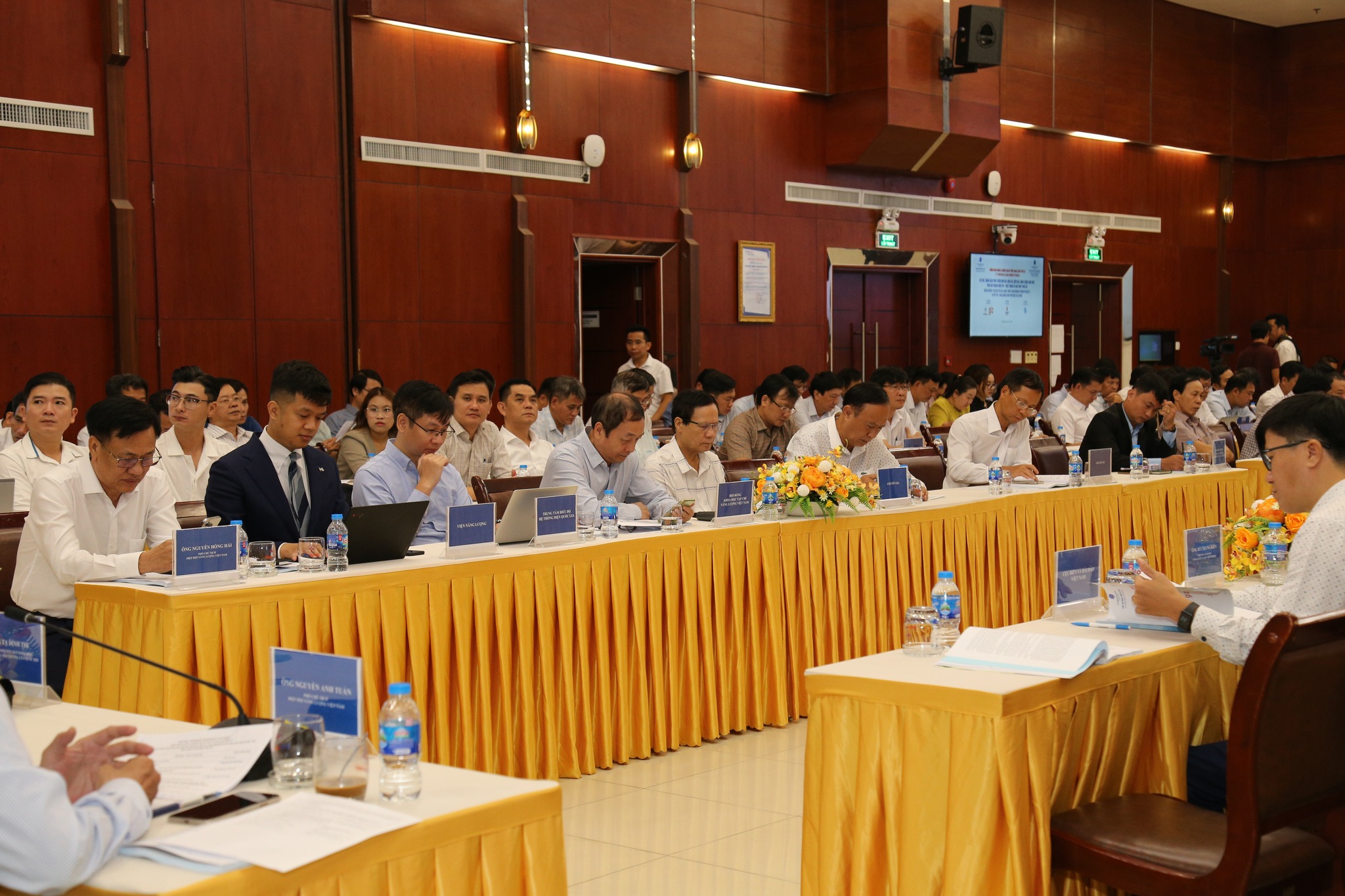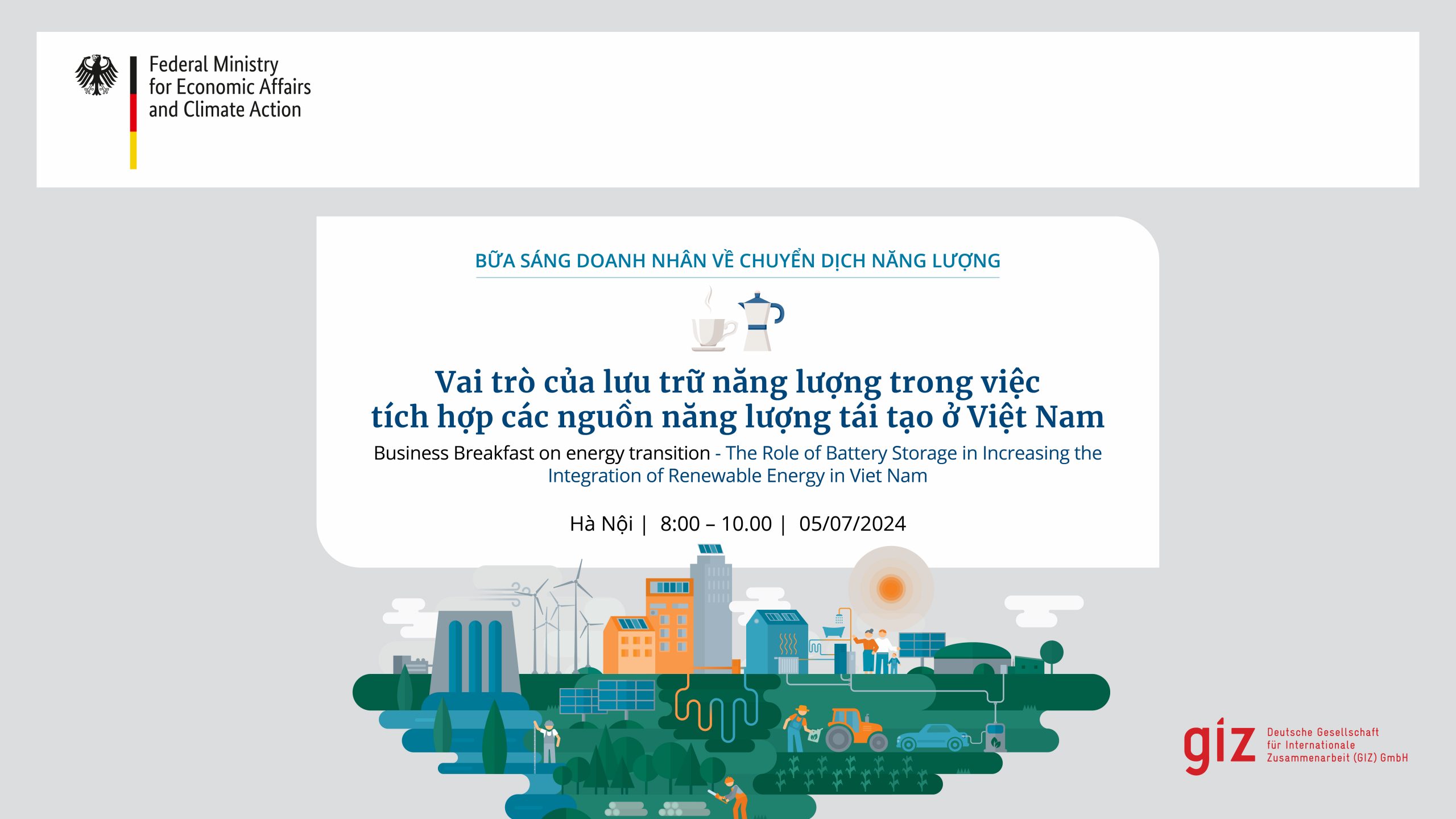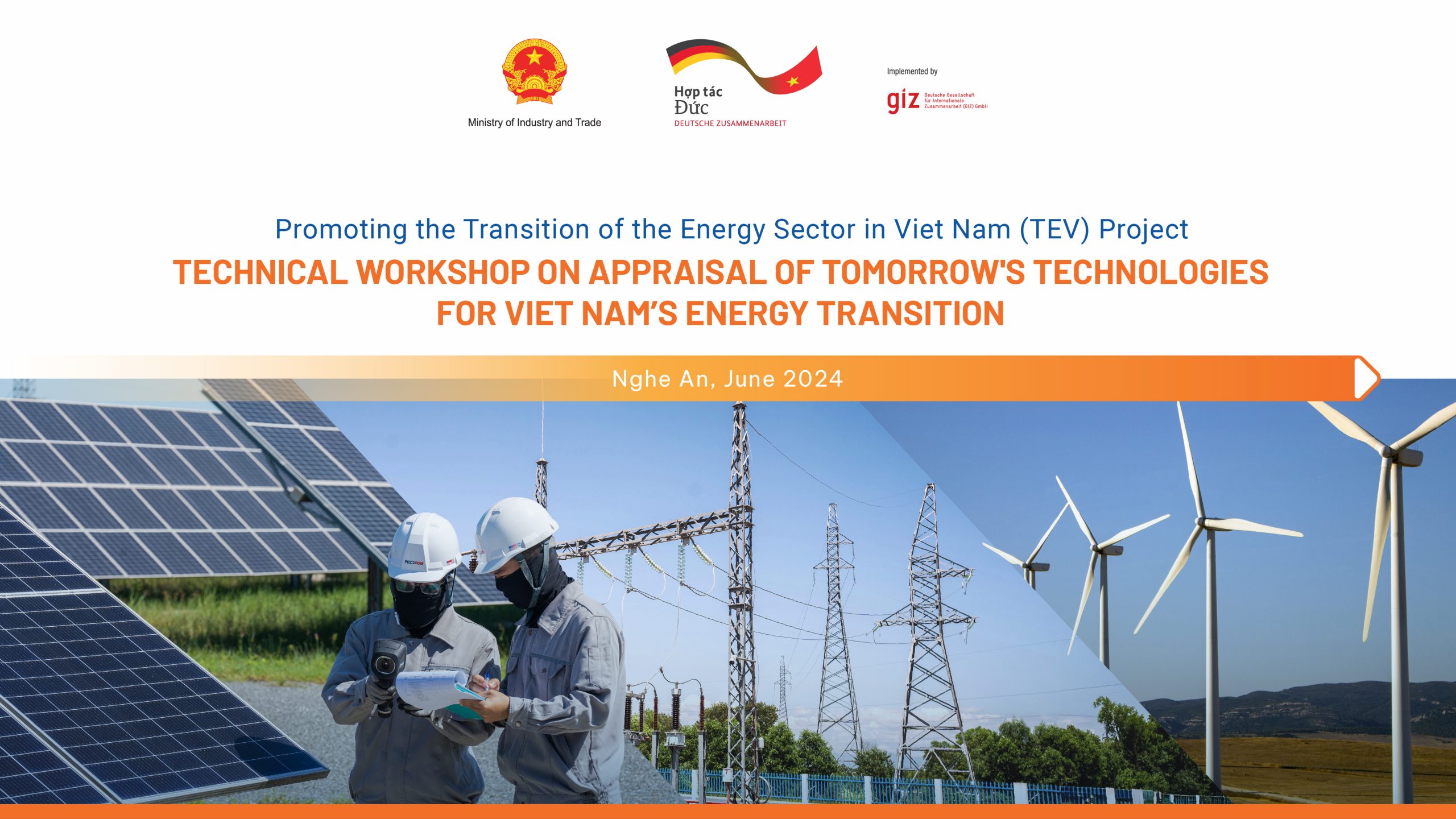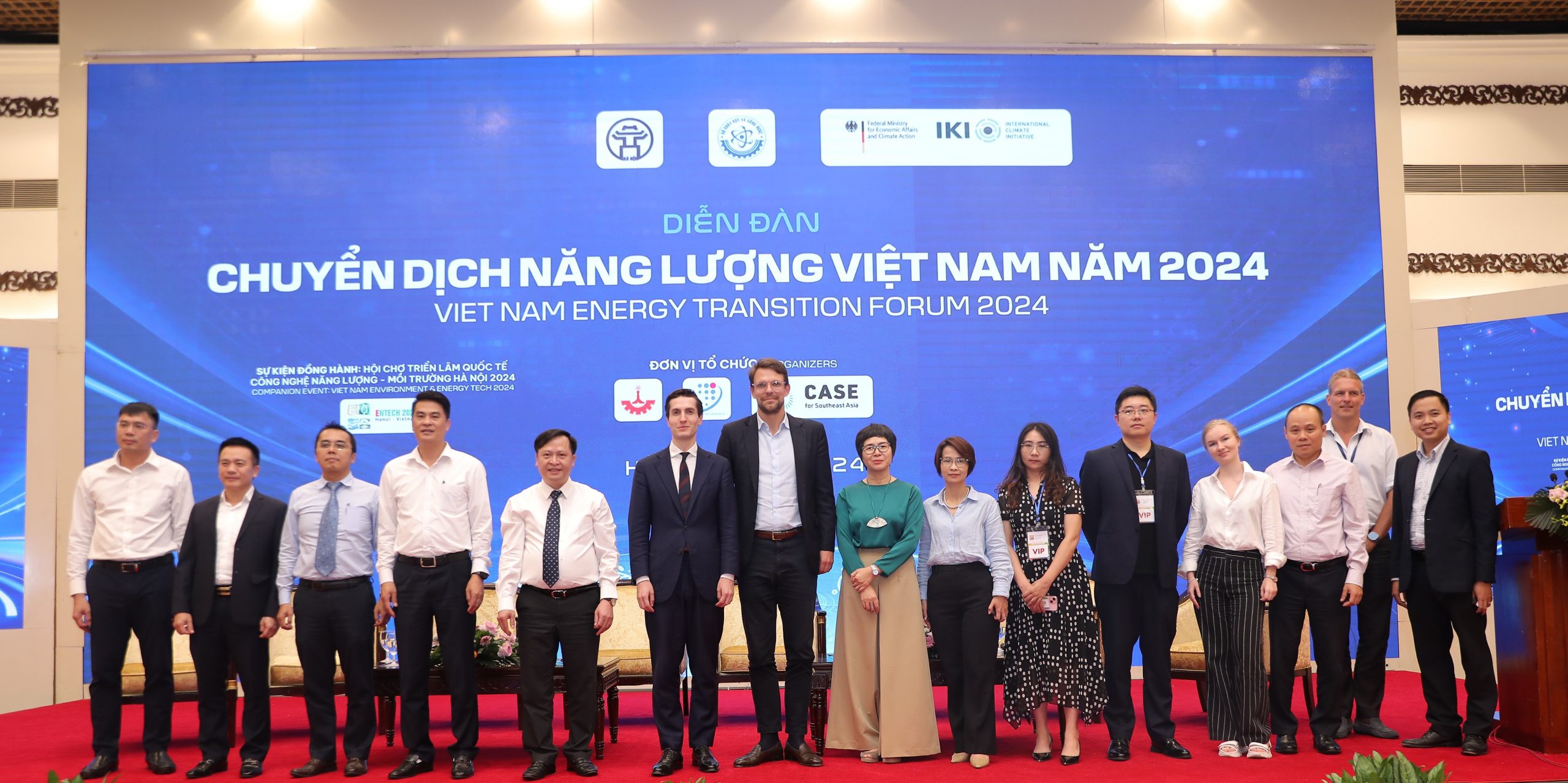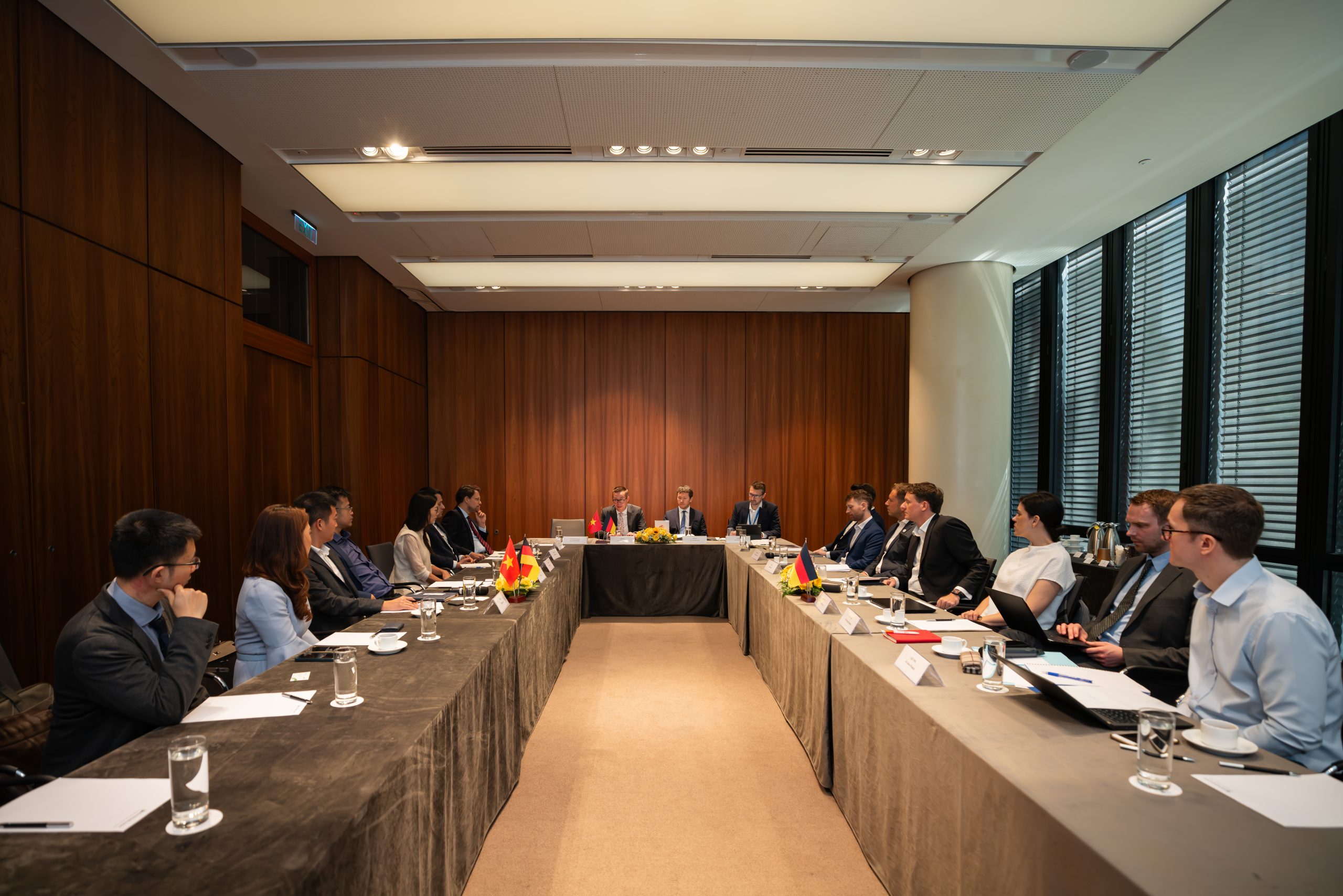Energy transition – opportunities for “green jobs”
What opportunities are emerging for Vietnamese workers in the energy transition and what challenges will confront Viet Nam’s labour market? These topics were discussed at the conference “Just Energy Transition = Job Accelerator for Viet Nam? German and Vietnamese perspectives on employment and skills needs”, that took place today, September 20, at the Melia Hotel, Hanoi. The event was organised in a hybrid format, by the German Embassy in Hanoi with the participation of the Ministry of Industry and Trade, Ministry of Labour, Invalids & Social Affairs, Vietnam Electricity, Vietnamese Chamber of Commerce and Industry , the Deutsche Gesellschaft für Internationale Zusammenarbeit (GIZ), and many other national and international and multilateral organisations, departments and business representatives.
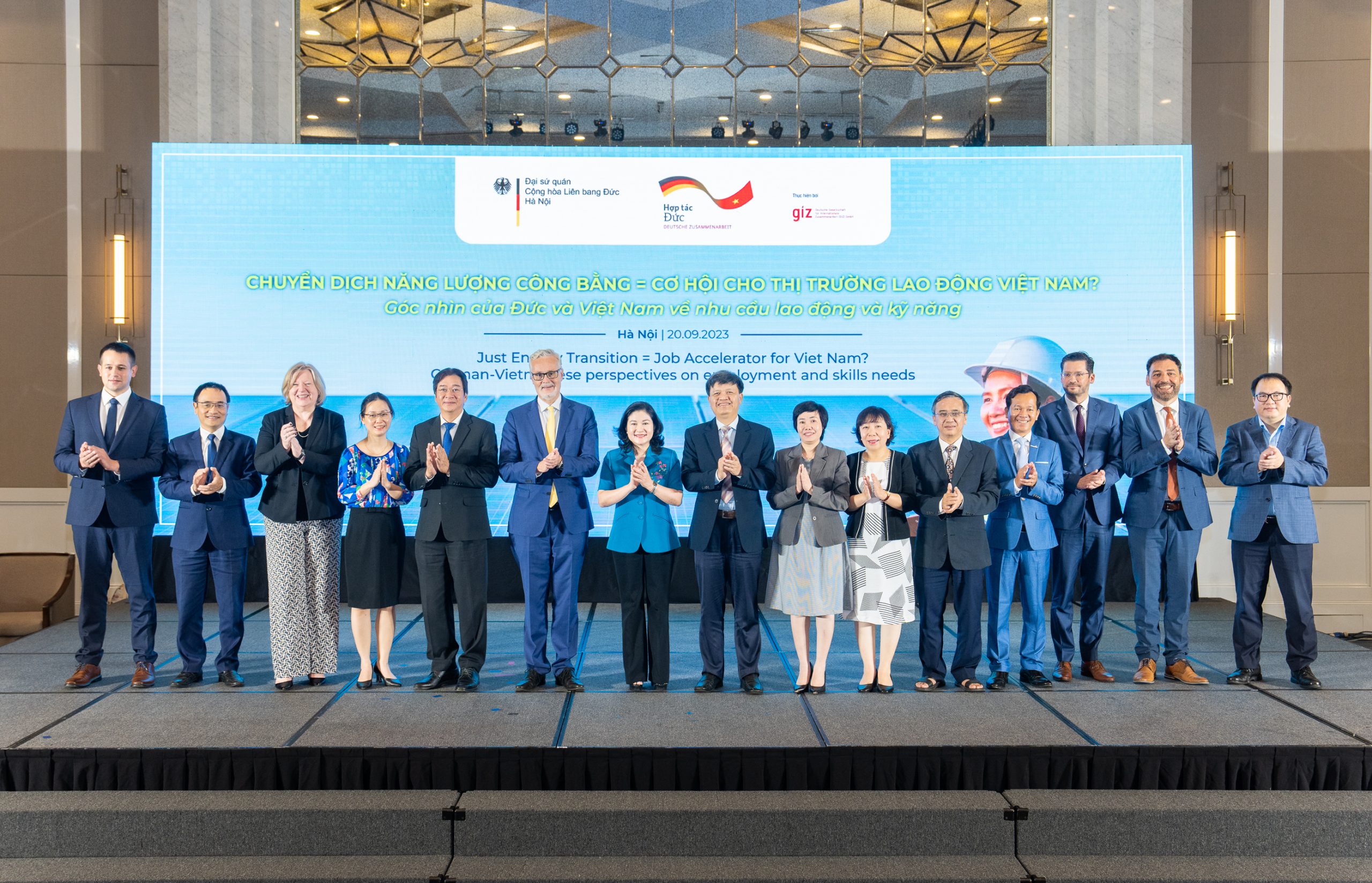
With a goal of combining environmental responsibility with economic and technological progress and social fairness, the conference provided a comprehensive view of the global concept of a Just Energy Transition. It demonstrated research insights and experiences from Germany and worldwide on the impact, challenges and opportunities of the energy transition. It also facilitated discussions on employment, skills needs, and requirements in the context of Viet Nam’s green transition.
Dr. Guido Hildner, Ambassador of the Federal Republic of Germany to Viet Nam, stated: “Building on the long-standing cooperation between Germany and Viet Nam, the German Embassy organises this conference to provide a forum for national and international policy makers, businesses, researchers, development practitioners as well as the public to come together to discuss job potentials and skills needs for a just energy transition.”
At the conference, experts revealed that to achieve a just energy transition it is important to involve all relevant stakeholders and affected subjects in the transition process., It is necessary to focus on key factors including enhancing vocational training to develop green skills, of the local workforce and taking advantage of the strong cooperation with reliable and innovative partners to effectively make use of valuable knowledge, technology transfer as well as harnessing the the potentials and strengths of each party.? ?

Lessons and solutions come from practice.
With its experience as a pioneer in implementing a just energy and job transition, Germany has set an ambitious goal of achieving carbon neutrality by 2045. According to the German Ambassador, Dr. Guido Hildner, in the first half of 2023, 57.7% of the country’s electricity consumption came from renewable energy sources, and the goal is to increase this share to 80% by 2030, thereby fully replacing coal power that will be phased out by 2030. The impact of these changes is far-reaching. Since 2000, the number of jobs in the renewable energy sector in Germany has tripled to approximately 350.000, and this trend will continue in the coming years.
Talking about job transition, Dr. Markus Janser, from the German Institute for Employment Research held a keynote titled “Effects of the Energy transition on Skills and Employment in Germany”. It showed how the energy transition in Germany affected the labour market, as well as policies that serve this goal. Overall, the net effects of the green transition on employment are strongly positive. Structural changes started in the last century with the coal phasing out. Affected workers had to be reskilled and shifted to new economic sectors. At the macro level, the German Government develops active labour market policies to ensure a just transition. Along with that, there are salary insurance regimes, adjusting subsidies for employees working for a short time. For workers, Germany has incentives for job seekers or graduates, giving priority to promoting “green jobs” on the career database system or online job search tool, promoting climate protection in career counselling services… For businesses, Germany offers consulting services for companies that are particularly affected (positive or negative) by the energy transition and supports the recruitment of additional relevant skilled workers (the “Green Skills for the Future”).
Such case study from Germany is a valuable lesson for countries striving for a just energy transition, especially Viet Nam, so that no citizen is excluded from the benefits of a sustainable transition.
Viet Nam-German cooperation in efforts to “green” the labour market
According to the German Ambassador, Dr. Guido Hildner, to enjoy the benefits of the green growth, Viet Nam needs to improve the capacity of its workforce, especially “green” skills and promote jobs in the sustainable energy sector, including renewable energy, energy efficiency, grid management and green hydrogen, and ensure social security for those affected. Dr. Hildner stated: Through the long-standing cooperation of VietNam and Germany in vocational education and training, we have built the foundation for the job transition by developing training programmes for technical occupations like electrics and mechatronics, which are the basis for further training of workers in renewable energies. The training programmes are based on international and German standards and follow Vietnamese regulations and requirements. Together with frontrunner enterprises such as Festo, Schneider Electrics, IBS and the Ninh Thuan Vocational college, we have started to develop upskilling modules for renewable energy technicians, for example in solar rooftop installation. Each year, 35.000 trainees benefit directly and indirectly from the Vietnamese-German development cooperation in vocational training at 11 partner colleges. With our support, the Ninh Thuan Vocational College is becoming a training hub for renewable energies.
Looking at the history of German-Vietnamese cooperation in the field of energy and renewable energy development, Germany is a reliable partner of Viet Nam with positive contributions – including in the fields of energy, employment and vocational education, skills development. The German Government’s development cooperation orientation is not only to address the need for “green jobs” in Viet Nam but also to pay attention to equity for disadvantaged groups, gender equality and vocational transformation for workers in the traditional energy sector. Ms. Vu Chi Mai – Director of the Clean, Affordable and Secure Energy for Southeast Asia (CASE), under the GIZ Energy Support Programme, added.
Mr. Ta Dinh Thi, Vice Chairman of the Committee on Science, Technology and Environment of the National Assembly said that lessons learned from Germany and other countries at this workshop will be a valuable source of information for the Committee on Science, Technology and Environment to refer to and perform its responsibilities in supervision, propose and comment on draft laws, ordinances, and resolutions in the fields of energy, environment and sustainable development.

According to experts, the conference “Just Energy Transition = Job Accelerator for Viet Nam? on German-Vietnamese perspectives on employment and skills needs for the green transition” showed that the exchange of experiences as well as close cooperation between countries actively committed to the energy transition, such as Viet Nam and Germany, are extremely important for the success of the global energy transition.



